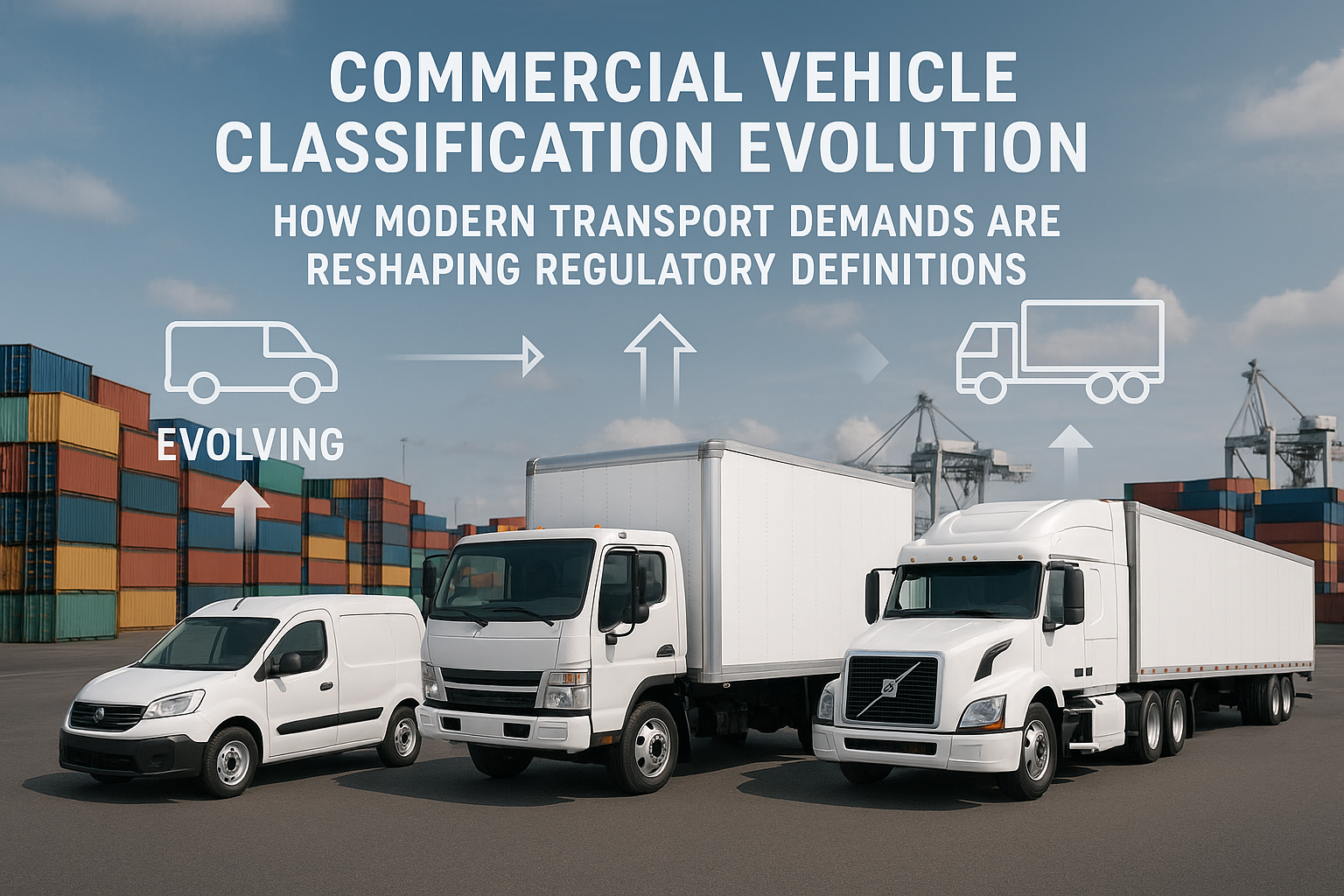What is classified as a commercial vehicle? It seems like a simple question—until you try to answer it across 50 states, multiple local agencies, and in the context of electric vans, hybrid cargo cars, and self-driving delivery fleets. As the transport industry rapidly evolves, so too does the answer. At Reliable Permit Solutions, this question is at the heart of everything we do—and lately, it’s never been more complex or consequential.
When Old Definitions Meet New Roads
Traditionally, what is classified as a commercial vehicle was tied to weight thresholds, business use, or certain vehicle types like trucks or buses. But today? The definition is no longer so clear-cut. Between the rise of electric delivery vans, gig economy vehicles, and autonomous tech, regulators are struggling to keep up, and fleets are caught in the middle.
A vehicle that looks personal could operate commercially. A truck that seems commercial may be exempt, depending on its weight, fuel type, or how it’s used. The lines are blurring.
Where You Drive Matters: The Jurisdictional Minefield
Ask a carrier running through five states, and they’ll tell you: what is classified as a commercial vehicle in Arizona might not be in Colorado. Local and state definitions vary wildly, and there’s little national consistency. One city may require a permit for an electric van used in local deliveries. Another may not, because the weight falls below a certain threshold.
For clients of Reliable Permit Solutions, this creates a patchwork of compliance challenges. Operating across multiple jurisdictions means constantly adapting to shifting regulatory interpretations and reevaluating classifications city by city.
Electric, Hybrid & Alternative Fuel Vehicles: Disrupting the Framework
Electric commercial vehicles are forcing a massive rethink. Many don’t meet traditional criteria—yet they perform commercial functions every day. What is classified as a commercial vehicle now must factor in battery weight, axle distribution, and emissions exemptions.
Hybrid vehicles blur this line even more, especially when they’re used for both personal errands and business deliveries. For companies seeking trip, fuel, or oversized permits, Reliable Permit Solutions is seeing an explosion in cases where classifications are in dispute. Regulators haven’t caught up. But permits are still required.
Autonomy Isn’t Helping (Yet)
Autonomous vehicles are another category, throwing a wrench into old classification standards. Is a self-driving van operating on behalf of a retail platform a commercial vehicle, even if no one is inside? What about AI-driven fleet trucks with no physical operator? The lack of a human driver challenges assumptions built into decades of regulatory language. For companies navigating autonomous delivery, the consequences of misclassification can be severe, from rejected permits to fines and enforcement actions.
The Gig Economy Dilemma
Apps like Uber, Instacart, and DoorDash have created a fleet of “casual” commercial vehicles—owned by individuals, but used for business. Are these truly private cars, or should they be classified as commercial vehicles? Once again, the answer depends on who you ask—and where. At Reliable Permit Solutions, we help navigate these nuances daily. Misclassification not only leads to compliance issues but also affects insurance, tax obligations, and operational efficiency.
Weight, Usage & Purpose: Not Always Enough
Many regulatory agencies rely on weight and use to determine classification. But these measures are increasingly out of step with modern vehicle designs. An electric cargo van may be lightweight, but it still operates with full commercial intensity. Others may be dual-use—serving personal needs by day and business use by night. So, what is classified as a commercial vehicle today? It’s less about form and more about function. And that function can shift daily.
Permits, Compliance & the Cost of Getting It Wrong
Misclassification isn’t just a paperwork error—it can result in denied permits, regulatory penalties, and disruptions in operations. Whether it’s a fuel tax permit, trip permit, or oversized/overweight authorization, every aspect of the permitting process begins with answering: What is classified as a commercial vehicle? Reliable Permit Solutions ensures businesses get this answer right—every time, in every jurisdiction.
Future-Proofing Vehicle Classification
To stay ahead, businesses need to think long-term. That means working with compliance experts like Reliable Permit Solutions, who track regulatory trends and classification updates across 2,500+ localities. GPS tracking, telematics, and digital records are already influencing classification decisions—and soon, AI-powered systems will be doing the same. The future belongs to carriers that adapt quickly and classify smartly.
Industries Feel It Differently
Construction fleets have unique needs; agricultural vehicles may qualify for exemptions; retail delivery networks face higher scrutiny. Understanding how classification applies to your specific industry is essential. Reliable Permit Solutions doesn’t believe in one-size-fits-all answers—we tailor our approach based on your fleet type, business model, and regional operations.
Build a Smarter Compliance Framework
Ultimately, solving the question of what is classified as a commercial vehicle is about building a proactive, strategic compliance framework. It’s no longer enough to check a box and move on. You need real-time insights, jurisdictional awareness, and partners who understand the nuance.
At Reliable Permit Solutions, we help clients build that framework—and evolve with confidence as the road ahead changes. If your operations cross state lines, rely on alternative fuel, or operate on-demand platforms, now’s the time to reassess your classifications.
Because in 2025 and beyond, what is classified as a commercial vehicle isn’t just a definition—it’s a competitive advantage.
Need clarity on your fleet’s classification? Reach out to Reliable Permit Solutions—where regulatory mastery meets real-world mobility.

